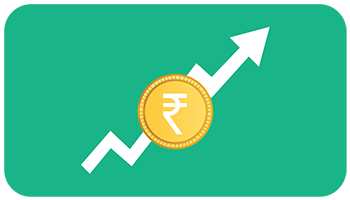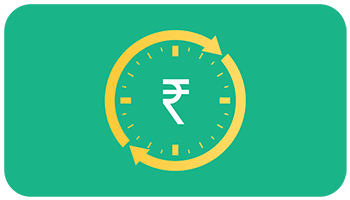You’ve lent 5 lakhs to your friend who owns a start-up @8% interest (higher than current bank rate of 7%). Even though you’ve known him for years, you still run the risk that he may not return your money on time or may fail to pay back. Also, the bank rate may rise to 8.5% while you are stuck with 8%.
Likewise, Debt Funds invests your money in an interest-bearing securities like bonds and money market instruments. These securities promise to make regular interest payments to these funds. Hence Debt Funds are prone to three major risks like you when you lend money to friends.
- Firstly, since these funds invest in interest-bearing securities, their NAV fluctuate with changing interest rates (interest rate risk). Prices of these funds fall when
285













